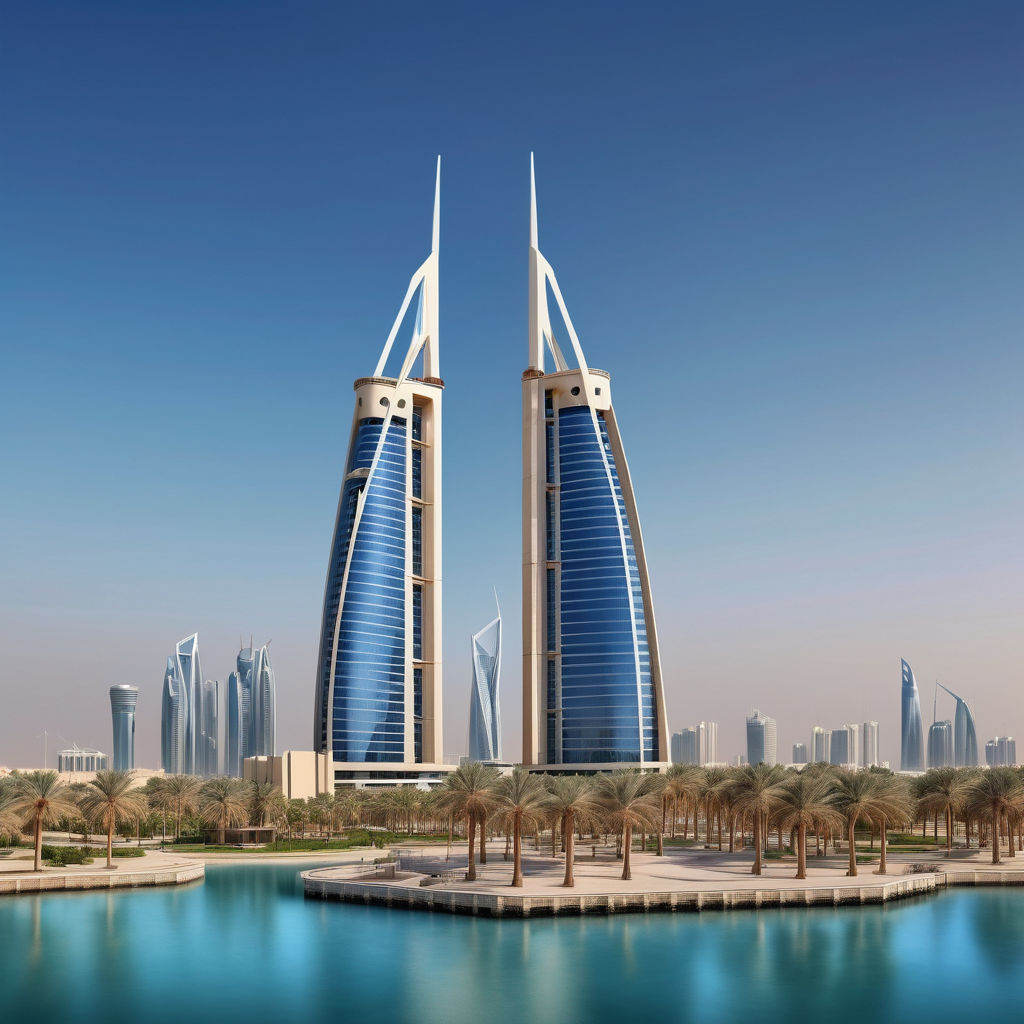Introduction to Bahrain: Culture, Heritage, and Cross-cultural Engagement
Discover Bahrain's Rich Cultural Heritage and Cross-cultural Connections

Introduction to Bahrain
Bahrain, officially known as the Kingdom of Bahrain, is a small island nation situated in the Persian Gulf. It is bordered by Saudi Arabia to the west and Qatar to the southeast. Bahrain's strategic location has made it a crucial player in regional trade and geopolitics. The capital city, Manama, is the largest city and serves as the economic, cultural, and social center of the country. Other major cities include Muharraq, Riffa, and Isa Town. Bahrain boasts a rich cultural heritage that reflects its long history as a trade hub. The country is known for its archaeological sites, such as the Bahrain Fort and the Dilmun Burial Mounds, which provide insights into ancient civilizations. Bahraini culture is a blend of Arab traditions, Persian influences, and modern cosmopolitanism. The country is renowned for its traditional crafts, such as pearl diving, weaving, and pottery, as well as its vibrant music and dance traditions.
Cross-national and Cross-cultural Understanding
Bahrainis generally perceive and engage with other cultures with openness and curiosity. The country's history as a cosmopolitan trade center has fostered a culture that values diversity and cross-cultural exchange. Bahrainis are known for their hospitality and willingness to learn about and engage with other cultures. Cultural exchanges play a significant role in fostering cross-cultural understanding in Bahrain. The country hosts numerous festivals and events that celebrate both local and international traditions. For example, the Bahrain International Music Festival and the Spring of Culture Festival attract artists and audiences from around the world, promoting cultural exchange through music, dance, and art. Additionally, Bahrain’s participation in international organizations such as the Gulf Cooperation Council (GCC) and the United Nations (UN) facilitates cultural and educational exchanges. Educational programs in Bahrain emphasize global awareness and cross-cultural understanding. Schools and universities incorporate multicultural perspectives into their curricula, encouraging students to appreciate and respect diversity. The University of Bahrain and other higher education institutions collaborate with international partners to facilitate student and faculty exchanges, enriching the educational experience and fostering global connections.
Interactions and Social Dynamics
Typical interactions between Bahrainis and foreigners are characterized by warmth, hospitality, and a strong sense of community. Social behaviors in Bahrain reflect a blend of traditional customs and contemporary influences, emphasizing respect for others, politeness, and communal living. Communication styles in Bahrain are generally formal but friendly. Arabic is the official language, but English is widely spoken and used in business and education, which facilitates interactions with tourists and expatriates. This multilingualism makes it easier for foreigners to integrate into the local community. Cultural norms in Bahrain place a strong emphasis on respect for elders, family values, and community involvement. These norms create a welcoming and inclusive atmosphere for foreigners, who often find it easy to adapt to the local way of life. Public displays of affection are generally modest, reflecting the country’s traditional values, but social gatherings and communal activities are vibrant and inclusive.
Views on Dating and Relationships
Attitudes towards dating and relationships with foreigners in Bahrain are generally open but influenced by cultural and traditional norms. Bahrainis recognize the opportunities for cultural exchange and personal growth that such relationships can bring. However, traditional customs and values play a significant role in shaping these views. Family involvement is significant in relationships in Bahrain, with elders often playing a crucial role in the approval process. Traditional customs emphasize respect, patience, and the gradual building of trust in relationships. While modern dating practices influenced by global trends are becoming more common among younger generations, traditional values still hold sway in many communities.
Marriage and Family
Marrying a foreigner in Bahrain involves navigating both legal and social considerations. Legally, the country has clear regulations governing marriage, including residency requirements and the need for proper documentation. Socially, cross-cultural marriages are generally accepted, though couples may face challenges related to cultural differences and integration. Familial acceptance is a key factor in cross-cultural marriages. Bahraini families can be protective, and gaining their approval is often essential for the relationship's success. However, the diverse cultural landscape of Bahrain means that many families are already familiar with and accepting of different cultural backgrounds, which can facilitate smoother integration for foreign spouses. Trends in cross-cultural marriages reflect Bahrain’s open and inclusive society. Many Bahrainis who travel abroad for education or work form relationships with individuals from various cultures, bringing back diverse customs and traditions that enrich the local community.